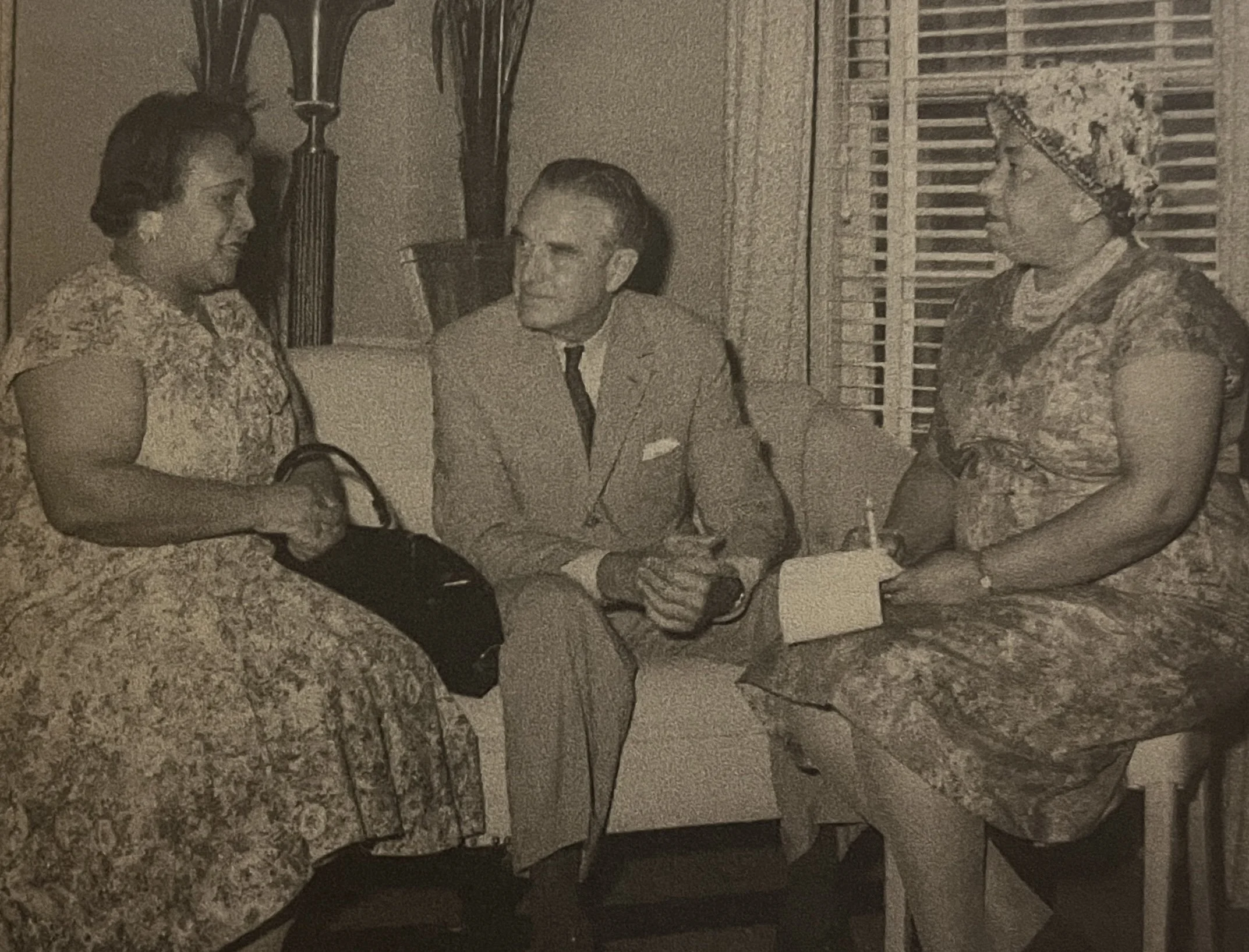women—
From Jo March’s fantastic monologue in Little Women (2019).
Alice Dunnigan was one of the few women aboard the Presidential Special on Truman’s whistle-stop tour in 1948.
This came with, Alice wrote, a “special advantage—flowers.”
At each stop, people gifted First Lady Bess Truman with “gorgeous bouquets,” so many that the presidential car overflowed. So Mrs. Truman often sent a porter down the train to deliver some of the flowers to Alice’s car.
“You have nothing to fear,” the porter would tell Alice. “There are no bombs in them. The Secret Service has carefully examined every leaf and bud.”
I love that story, and anyone who has heard me talk about Alice has probably already heard me tell it. I love flowers—both receiving them and buying them for myself as a treat. On my first day of teaching a few months ago, both my husband and parents gave me flowers as congratulations. Loui and I saved our grocery shopping for Valentine’s Day so I could watch people buy flowers for loved ones.
So I love to imagine the colorful, huge bouquets that populated Alice’s and the first lady’s train cars—and to imagine the women in each town who undoubtedly poured so much care into making the perfect arrangement. It’s such a lovely gesture and such a good metaphor for women caring for and supporting one another.
Before Alice fought to be on the whistle-stop tour, she had to fight to be credentialed to the White House and Capitol press corps. One credential, however, was easy for her to acquire.
“Another necessary pass for women in those days was one which admitted the holder to the First Lady’s press conferences,” Alice wrote. Those were held in the East Wing, while the president’s were held in the West Wing. “I had no difficulty obtaining this pass.”
Press conferences only for women reporters began under First Lady Eleanor Roosevelt, who hosted her first one on March 6, 1933, only two days after her husband’s first inauguration. Over the next 12 years, Eleanor Roosevelt hosted 348 press conferences, about topics “of special interest and value to the women of the country.”
It’s very cool that Alice didn’t have to struggle to gain the credential—it unfortunately wouldn’t have been surprising if racism had trumped support for fellow women. But I’m not sure Alice got to use that credential very much.
Alice wasn’t a reporter until the Truman administration, and, unlike Eleanor Roosevelt, Bess Truman didn’t like the spotlight. It seems she held only one press conference, and that her successor Mamie Eisenhower did the same. Though Jackie Kennedy’s fandom helped women reporters get on the front page more often, she didn’t have any affinity for them, apparently calling them “harpies.”
On a more positive note, over in the presidential press conferences, Alice had a longstanding woman colleague and friend: Ethel Payne. Eventually nicknamed the First Lady of the Black Press, Payne was credentialed a few years after Alice.
Ethel Payne and Alice Dunnigan conduct an interview together. From Alone atop the Hill by Alice Dunnigan.
The two supported each other through instances of racism and sexism, including President Eisenhower’s refusal to call on either of them and their colleague Louis Lautier’s derision of their work as “gal reporters.”
In recent years, Alice and Ethel have shared honors. In 2022, the White House Correspondents’ Association announced its first-ever lifetime career achievement award, named for the two women. In 2024, White House press secretary Karine Jean-Pierre announced the naming of the Dunnigan-Payne Lectern.
I think of Alice Dunnigan every day—certainly not just on International Women’s Day or during Women’s History Month. But ‘tis the season, so I encourage you take some time to learn more about incredible women in your homes and workplaces, on your television screen and basketball courts, in your history books and left out of them. Give women their flowers—whether that takes the form of words of encouragement, pay equity, or a gorgeous bouquet.


